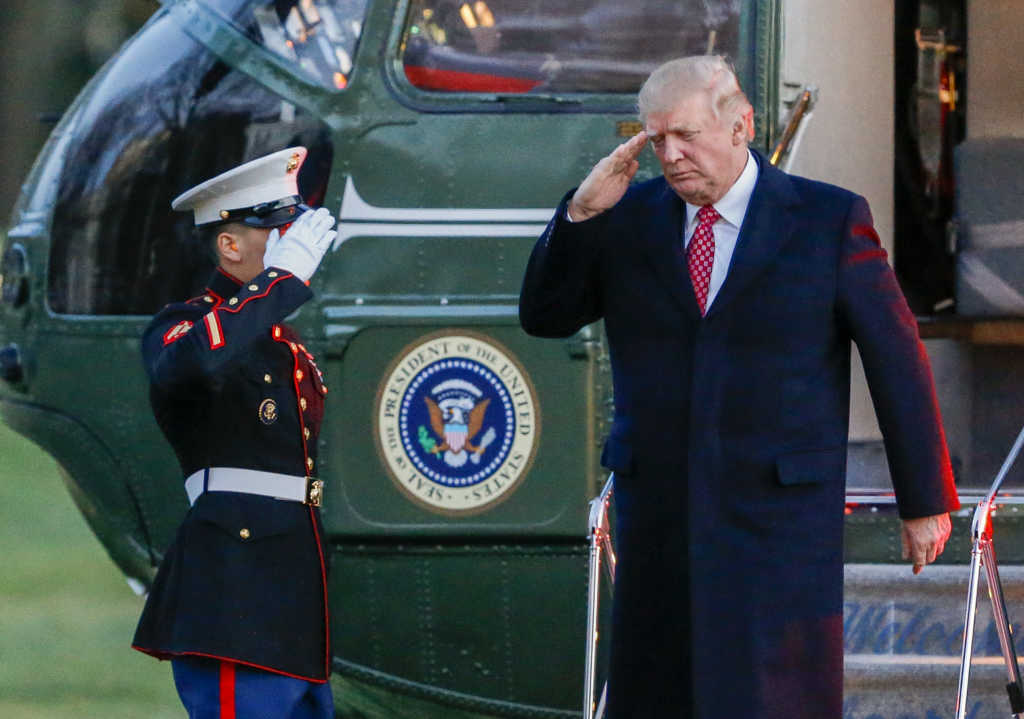Debate persists after President Donald Trump rescinded and replaced his controversial executive order curtailing immigration from a select group of countries, with critics continuing to push back against the contents of the newfound measure.
There’s one area of the new order, in particular, that has drawn the ire of some civil rights experts, who say its contents prove that the executive order as a whole is a covert attempt to target Muslims.
In section 11 of the document, titled, “Transparency and Data Collection,” Trump pledges to make available through the offices of the Secretary of Homeland Security and the U.S. Attorney General a variety of statistics and information. Among that data is a call for information surrounding “gender-based violence” and, in particular, “honor killings.”
According to text of the executive order, the government will make available, “information regarding the number and types of acts of gender-based violence against women, including so-called ‘honor killings,’ in the United States by foreign nationals.”
Honor killings are generally associated in media and debate circles with a minority of individuals who subscribe to the Islamic faith, though many academics attribute the violence more to cultural practice than religion. Either way, critics see the inclusion of the language in the executive order as problematic.
“It is a thinly veiled reference to stereotypes about Islam and Muslims,” Daniel Mach, director of the American Civil Liberties Union’s Program on Freedom of Religion and Belief, told Religion News Service. “This reference to honor killings is part of a broader effort to smear an entire faith by the extreme acts of a few, and its inclusion in this order bolsters the argument that this is simply another attempt at a Muslim ban.”
And Leti Volpp, a professor at UC Berkeley School of Law, told the San Francisco Chronicle that she believes the Trump administration is using the data in an effort to try and demean immigrants.
“This is about the Trump administration promoting and inflaming ideas about immigrants as a danger to the American public,” she said. “Honor killings are mistakenly thought to be a uniquely Muslim practice, and represent the idea of Muslim barbarity.”
It should also be noted that honor killings were mentioned in the first executive order, as was the associated request for data.
“The United States should not admit those who engage in acts of bigotry or hatred (including ‘honor’ killings, other forms of violence against women, or the persecution of those who practice religions different from their own) or those who would oppress Americans of any race, gender, or sexual orientation,” the original document read.
Honor killings are tragically not all that rare in some countries across the globe, with Religion News Service reporting that thousands likely unfold each year, generally after a woman is seen as disobeying a family member’s orders.
It is thought that such violence is rare in the U.S., though there have been a few publicized cases in the past. Consider the story of Texas teens Amina and Sarah Said, who were reportedly shot dead in 2008 by their father after refusing to accept arranged marriages. There are other cases as well, though an actual definitive number of honor killings isn’t all that simple to amass.
One estimate found that there are potentially 23 to 27 honor killings in the U.S. each year, but that range is based on the number of honor killings in Europe. Plainly stated: the actual number of U.S. killings is difficult to obtain.
Despite the pushback from critics, proponents of the executive order’s language on honor killings will likely see the resulting data as a helpful way to get a better handle on what’s been happening in America. Read more about Trump’s new order here.
—
Other Must-Read Stories:
– Filmmaker Reveals Shocking Curveball He Encountered While Filming New Ebola Documentary
– Former Porn Star Finds Jesus, Abandons Adult Filmmaking — and There’s More…
– This NYC Pastor Has Helped Save 200 Captives in Northern Iraq



